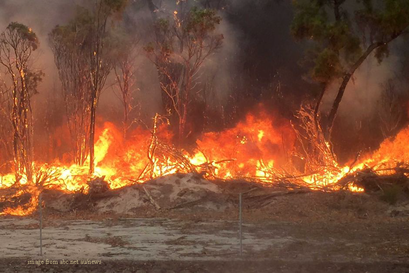|
In our long hot dry summers of Australia, we seem to be seeing an increasing number of destructive and terrifying bushfires, with many deliberately lit. Recent research tells us that there has been an increase of nearly 40% in the number of bushfires in Australia, increasing from around 3200 in 2007 to nearly 5000 in 2013. And it has been estimated that about 13% of these are deliberately set, with 37% more being ‘suspicious’, with costs to our economy of about $1.6 billion a year. Psychologists now refer to deliberately lit fires as the act of Firesetting, which includes Pyromania and Arson. Pyromania is an impulse-control psychological disorder in which the individual gets intense pleasure or gratification from the fire. Arson is the criminal act of setting a fire usually for a specific purpose such as to obtain insurance money. Those involved in the prevention of deliberately lit fires are keenly aware of the necessity to prevent this destructiveness to save lives and property. A review of international research has found that around 30% of Firesetters will commit further acts of Firesetting.
Although rare, some Firesetters have been found to be volunteer or paid fire officers. James Ogloff, one of the foremost Firesetting researchers in Australia believes that we must develop improved systems to screen prospective fire fighters. But, as I said, this is rare, and it's my belief that we must be thankful to our fire officers for their dedication, bravery and commitment to us and our community. However it is also clear that despite the potential danger, the vast majority of Firesetters do not wish to cause physical harm to others. There are many reasons or influencing factors to Firesetting, and many different types of Firesetters. It is essential that Psychologists and law-makers learn more about the reasons why Firesetters deliberately light fires. While we may wish to have a Firesetting criminal profile, despite the belief created from a popular television program, there is no specific mindset or personality of a typical Firesetter. It is clear from research that Firesetting is a complex behaviour with a range of factors influencing the setting of fires. Understanding the social context and emotional responses of the Firesetter, as well as the reasons and motives behind firesetting behaviour will allow us to develop greater knowledge on how to intervene and what treatment to provide, to help prevent further deliberately lit fires. One of the key functions at inSync for life, is to provide thorough clinical interviews and detailed reports of individuals who have committed an offence or who have been alleged to have committed an offence. These comprehensive reports inform legal representatives and the Courts, as to the primary factors influencing the offending behaviour, with the overall goal to assist in the prevention of further offending. Steve Jobson
1 Comment
14/10/2017 11:15:44 pm
It is true that the trees catch fire naturally at the extreme of the heat. The jungle management need to be prepared before this kind of dangerous situation which may harm the animals. It happens mostly in South Africa because it is surrounded by trees all over.
Reply
Leave a Reply. |
Archives
May 2018
Topics & Authors
All
|
At inSync for life, we acknowledge the Traditional Custodians of the land on which we work and live.
We recognise their continuing connection to land, water and community, and we pay respect to Elders past, present and emerging
We recognise their continuing connection to land, water and community, and we pay respect to Elders past, present and emerging
Copyright © inSync for life 2024


 RSS Feed
RSS Feed